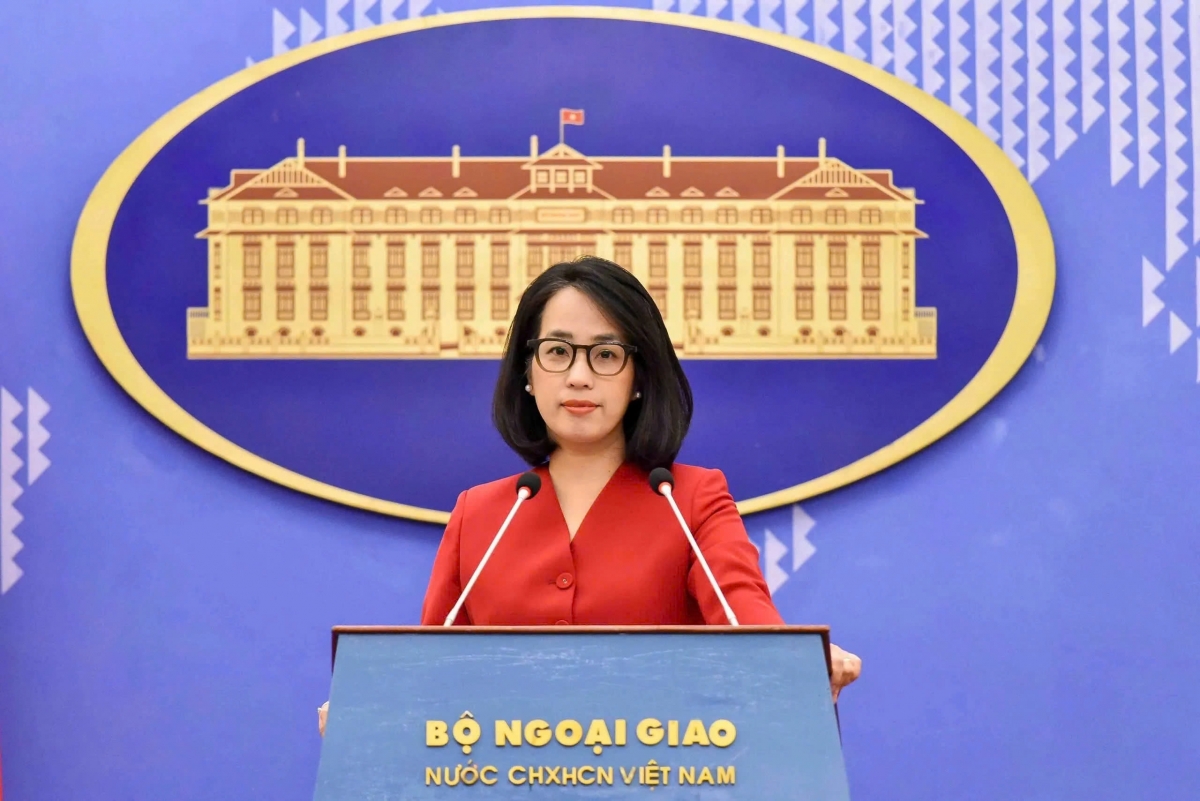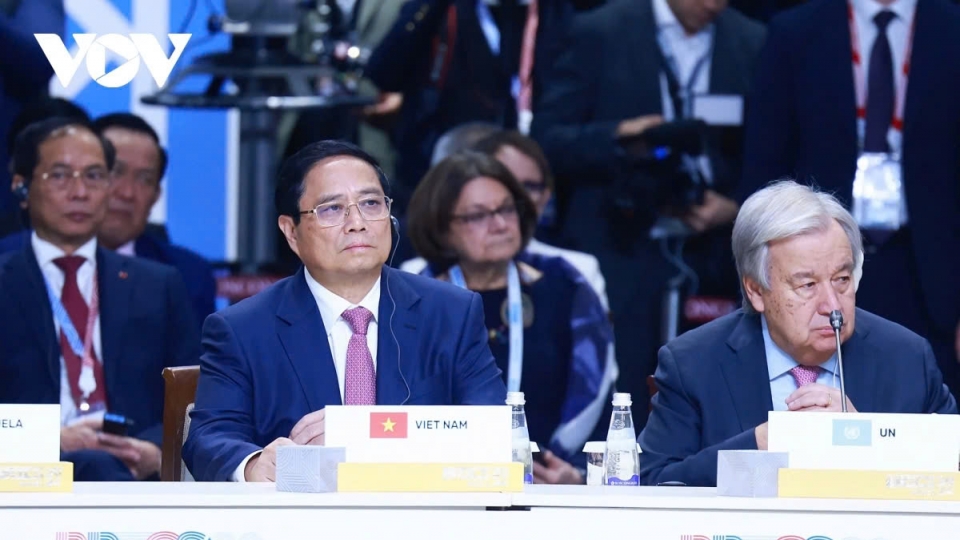Vietnam becomes a Partner Country of BRICS
VOV.VN - Vietnam has become a Partner Country of BRICS, a group of emerging economies that collectively account for over 40% of the world’s population and about one-quarter of global GDP, reflecting its desire to promote international solidarity and inclusive multilateralism.

Vietnam has joined the BRICS group of emerging economies as a Partner Country, with the intention of contributing to and enhancing the voice and role of developing nations, while promoting international solidarity and inclusive, comprehensive multilateralism based on respect for international law, said Foreign Ministry spokesperson Pham Thu Hang on June 14.
Her remarks came in response to reporters’ question regarding Brazil’s recent announcement that Vietnam has officially become a BRICS Partner Country.
The spokesperson affirmed that Vietnam has consistently made practical contributions to various multilateral mechanisms, organisations, and forums such as the United Nations, ASEAN, APEC, the expanded G7, the expanded G20, and the OECD, thereby contributing to peace, stability, cooperation, and development in the region and the world at large.
This move reaffirms Vietnam’s consistent foreign policy of independence, self-reliance, diversification and multilateralisation of external relations, while being a friend, a reliable partner, and a responsible member of the international community, Hang emphasised.
Brazil, the current rotating chair of BRICS, earlier announced that Vietnam had become the 10th partner country of the group, joining Belarus, Bolivia, Kazakhstan, Cuba, Malaysia, Nigeria, Thailand, Uganda, and Uzbekistan.
The Partner Country status was established at the 16th BRICS Summit held in Kazan, Russia, in October 2024. It is reserved for countries that are not full BRICS members but enjoy the support of existing member states.
Partner Countries are typically invited to attend BRICS leaders’ summits and may also participate in other discussions, subject to consensus among member states.
Founded in 2009 with four initial members, namely Brazil, Russia, India, and China, BRICS has later expanded to include South Africa, Egypt, Iran, Ethiopia, the United Arab Emirates (UAE), and Indonesia. Its cooperation is structured around three main pillars: political and security cooperation, economic and financial collaboration, and cultural and people-to-people exchanges.





